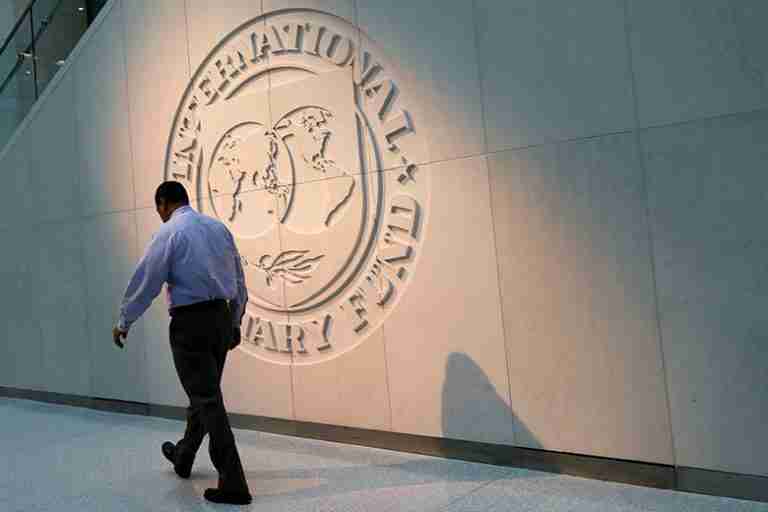Zimbabwe is showing early signs of economic recovery and macroeconomic stabilization, buoyed by recent policy reforms and improved fiscal management, according to the International Monetary Fund (IMF). The findings were published following the IMF's Article IV Consultation conducted in Harare from June 4 to 18, 2025.
Led by IMF mission chief Wojciech Maliszewski, the team noted that authorities in Zimbabwe had made notable progress in stabilizing the economy after enduring years of hyperinflation, currency depreciation, and structural imbalances. The introduction of the Zimbabwe Gold (ZiG) currency, a tightened monetary policy stance, and the halting of quasi-fiscal activities by the Reserve Bank of Zimbabwe (RBZ) were praised as key steps that helped curb inflation and bring some measure of stability to the exchange rate.
According to the IMF, Zimbabwe's real gross domestic product (GDP) is projected to grow by 6% in 2025. This marks a significant rebound from the economic contraction of 2024, which was primarily caused by a severe drought that crippled agricultural output and falling international mineral prices. The economic rebound is attributed to favorable climate conditions in the current year and a recovery in global gold prices, which have strengthened Zimbabwe's agriculture and mining sectors—both central to the country's economy.
Government revenues also rose to 18% of GDP in 2025, bolstered by tighter tax enforcement, the elimination of some VAT exemptions, and stepped-up anti-smuggling measures. However, despite improved revenue collection, the IMF raised concern over mounting fiscal pressures. These include rising public sector wages, debt repayment obligations stemming from the RBZ's past operations, preparations for the upcoming Southern African Development Community (SADC) summit, and contingent liabilities linked to the state-owned Mutapa Investment Fund.
The Fund pointed out that Zimbabwe's fiscal deficit had widened due to increased borrowing through Treasury bills and the use of RBZ's overdraft facility. This surge in domestic borrowing contributed to excess liquidity, which in turn triggered a sharp depreciation of the ZiG in September 2024. The devaluation led to inflation spikes and delays in government payments, as arrears began to build up.
However, between February and May 2025, the economy witnessed a marked stabilization in prices, with average monthly inflation slowing to 0.5%. The gap between the official and parallel exchange rates also narrowed to about 20%, reflecting improved confidence in the currency markets. The IMF welcomed the recent repeal of Statutory Instrument 81A, which had previously forced businesses to use the official exchange rate, encouraging informal trading and deepening dollarisation.
Among its key recommendations, the IMF urged the Zimbabwean government to avoid inflationary financing and to manage expenditure more effectively. The Fund emphasized the need for stronger political commitment to fiscal discipline, especially in the formulation of the 2026 National Budget, which it said should reinforce confidence in the government's reform agenda.
In monetary policy, the IMF advised the RBZ to improve transparency in the willing-buyer willing-seller (WBWS) foreign exchange system and to gradually phase out surrender requirements in favor of more market-driven mechanisms. The Fund also recommended the introduction of indirect monetary tools and a deposit facility at the central bank.
The IMF also highlighted the importance of enhancing governance and transparency at the Mutapa Investment Fund and other state-owned enterprises. It called for improved oversight, better reporting systems, and public access to audited accounts to reduce fiscal risks and build trust.
On currency reform, the IMF acknowledged the government's plan to transition to a mono-currency system anchored solely on the ZiG by 2030. However, it cautioned that any transition should be limited to domestic transactions and must not interfere with dual-currency bank accounts in order to maintain public confidence in the financial system.
Despite Zimbabwe's positive momentum, the IMF reiterated that it cannot yet provide financial support to the country due to unsustainable debt levels and outstanding arrears. The resumption of IMF lending would require a credible debt restructuring plan, clearance of arrears, and consistent implementation of reforms that address macroeconomic imbalances, poverty, and governance deficits.
Nonetheless, the IMF reaffirmed its commitment to support Zimbabwe's reform agenda through technical assistance and policy guidance. During their mission, IMF officials held wide-ranging discussions with President Emmerson Mnangagwa, Finance Minister Professor Mthuli Ncube, RBZ Governor Dr. John Mushayavanhu, members of Parliament, civil society representatives, the private sector, and development partners.
"Zimbabwe's economic outlook is improving, but long-term stability hinges on deeper reforms, improved fiscal discipline, and enhanced governance," the IMF concluded.
- BD
 OK Zimbabwe posts US$17,8 million loss
OK Zimbabwe posts US$17,8 million loss  Hichilema meets Chivayo
Hichilema meets Chivayo  Millions celebrate Diwali festival in India
Millions celebrate Diwali festival in India  Econet Zimbabwe to delist from ZSE
Econet Zimbabwe to delist from ZSE  Gold edges up as traders await guidance
Gold edges up as traders await guidance  Mnangagwa fires Chitando, appoints Polite Kambamura
Mnangagwa fires Chitando, appoints Polite Kambamura  Young Investment Professional (YIP) Graduate Programme 2019
Young Investment Professional (YIP) Graduate Programme 2019 











 Young Investment Professional (YIP) Graduate Programme 2019
Young Investment Professional (YIP) Graduate Programme 2019
Editor's Pick